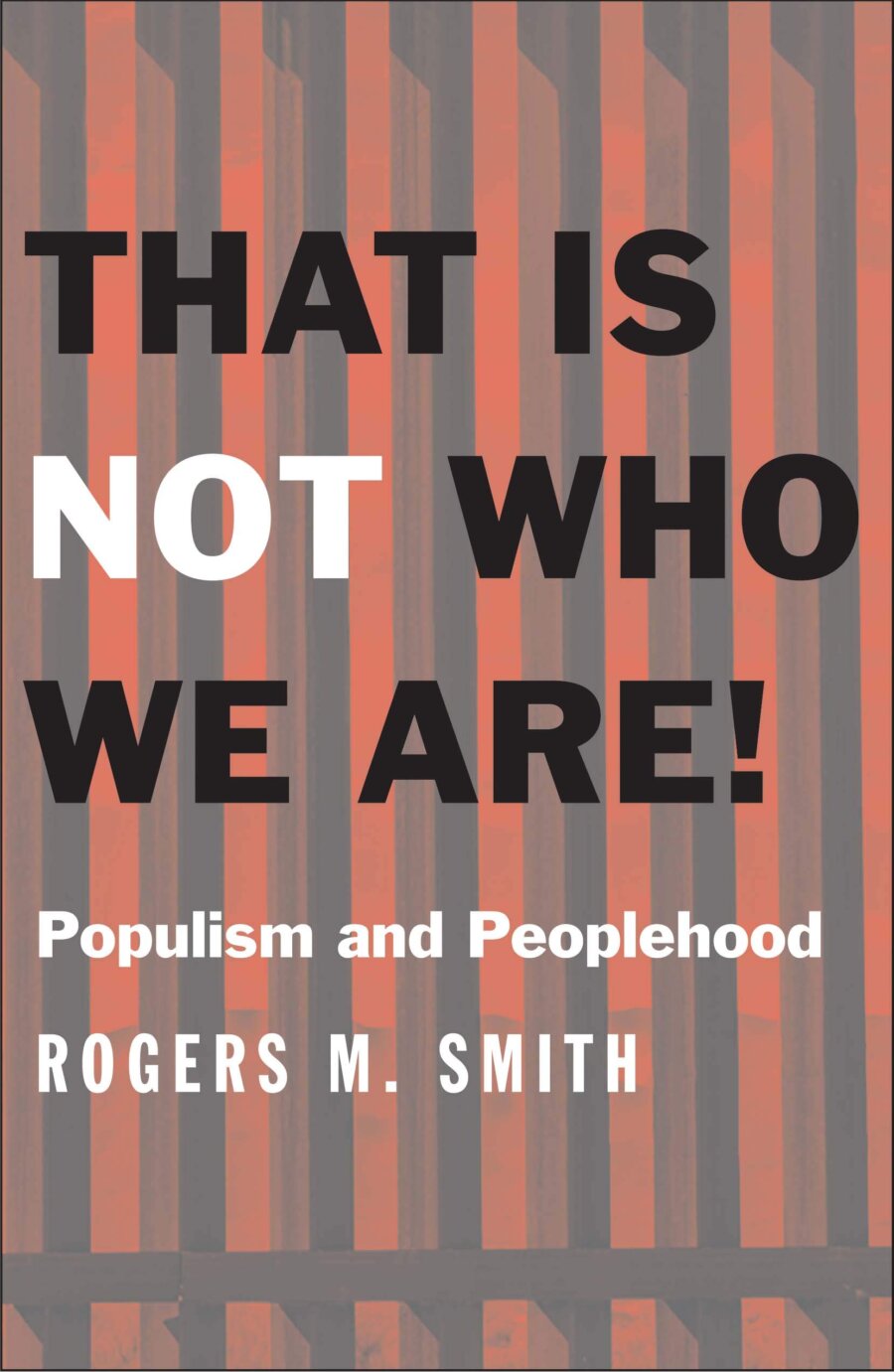This is Not Who We Are

That is Not Who We Are! Populism and Peoplehood. Roger M. Smith. New Haven: Yale University Press, 2020.
In This is Not Who We Are, Smith focuses on the narrative or stories of peoplehood. He argues that right-wing, authoritarian forms of populism have fragmented older senses of community and membership. He starts with case studies of the Czech Republic and Slovakia, the United Arab Emirates and the Philippines, and dissent communities in Northern Ireland and rural Wisconsin to show right-wing authoritarian narratives have derailed democratic politics. He then considers the strategies and limitations of some responses to right-wing populism and criticizes the political left for failing to offer countervailing stories of national identity. Underlying this analysis is that premise that narratives, stories of telling people who they are, are fundamental to politics. In this sense, Smith follows Voegelin’s “new” political science by starting with how societies first understand themselves.
Smith follows the Oxford Handbook of Populism for his definition as “a thin-centered ideology that posits a struggle between the will of the common people and a conspiring elite” (16). While there are strengths and weaknesses of this definition, this conception provides the baseline for Smith’s analysis of populism. However, one of the deficiency of the book, which Smith himself admits, is that he neglects the economic and cultural explanations for conceptualizing contemporary populism (18). Yet he incorporates economic and cultural in his conceptualization of the people as a self-narrative entity, e.g., the factors of globalization, instant communication. It is not clear how Smith connects these two accounts: neglecting economic and cultural explanations for one concept (populism) but accepting it for another (peoplehood). An example of this ambiguity is below when Smith concludes his analysis of his case studies:
We therefore must consider not only the ways that economic and cultural changes are constructing the landscape of contemporary politics, but also the ways that clashing stories of peoplehood are multiplying, and, at the same time dividing us, in order to grasp the challenge we face (50).
In response to right-wing populist narratives, Smith calls for liberals to provide a “civic” or “liberal democratic” narrative as opposed to the “blood and soil” conceptions of a nation. Liberals also must reflect a national identity in their response as well as to review the economic and cultural grievances that they see as driving the populist movements. To accomplish this, Smith calls for stories to be resonance, respectful, and reticulated (appropriate). Resonance are stories that apply to people of different identities and interests; respectful is to give these people a minimal hearing about their hopes and fears; and reticulated is to know which story to convey to which group.
Rejecting Trump’s “America First” narrative, Smith favors the story of making the United States a “more perfection union” as exemplified by Obama’s identification with the nation: “Yet no American political leader has ever identified the American story and his own story so fully with that goal as Barack Obama did” (102). Smith specifically cites the Declaration of Independence and, to a lesser extent, Lincoln’s “Gettysburg Address,” as the foundation for the American story that liberals should adopt. For Smith, this narrative captures the nation’s motto of “E pluribus unum,” although Smith himself admits that he is not offering a “single conception of American civic identity to which all should give allegiance, much less ‘total allegiance.’” As admirable as this attempt is, it leaves the lingering question for Smith: what, if anything, is to hold the United States together if civic identity is so thin to mean almost nothing?
This is Not Who We Are is a thoughtful attempt to make sure of the political polarized condition of our nation today. However, it only raises more question, both methodological and substantial, than it answers. Nevertheless, it is a good place to start a conversation between the political left and right and hopefully can point us to a direction of finding common ground.




